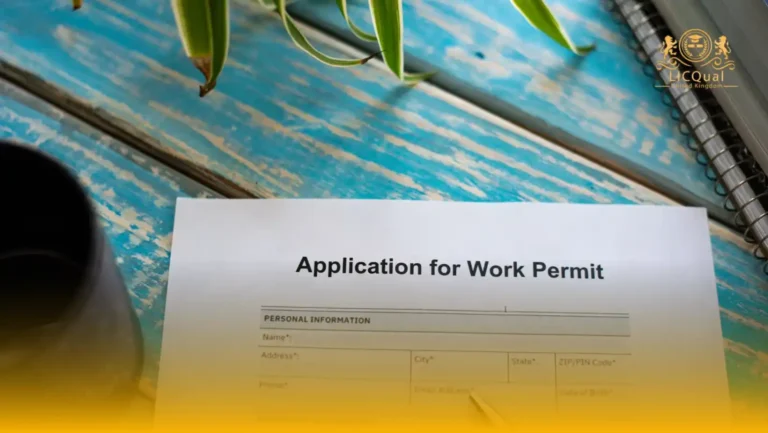The LICQual Level 6 Diploma in Healthcare Informatics is an advanced qualification designed for experienced healthcare professionals who are seeking to enhance their expertise in health information management, data analytics, and digital healthcare systems. This diploma is specifically tailored for learners who already have practical experience in healthcare environments and wish to expand their knowledge, strengthen their skills, and enhance their Continuing Professional Development (CPD).
Learners undertaking this qualification will gain a comprehensive understanding of healthcare informatics, including the collection, analysis, and management of health data to support clinical decision-making and improve patient outcomes. The programme covers key areas such as electronic health records, data security, health information governance, and the application of informatics tools in healthcare operations.
Centres delivering this qualification must ensure high-quality learning by employing competent and fully qualified staff. They are also required to provide learners with all necessary materials, resources, and support systems to facilitate effective training and successful course completion. By maintaining these standards, learners are empowered to apply their knowledge confidently in real-world healthcare settings, improving data-driven decision-making, operational efficiency, and patient care quality.
The Level 6 Diploma in Healthcare Informatics represents a significant step for healthcare professionals dedicated to leadership, innovation, and digital transformation. It bridges practical experience with advanced informatics expertise, preparing learners to lead initiatives in healthcare data management, optimise clinical workflows, and contribute meaningfully to the advancement of modern healthcare services.
Course Overview
Qualification Title
LICQual Level 6 Diploma in Healthcare Informatics
Total Units
6
Total Credits
120
GLH
480
Qualification #
LICQ2200764
Qualification Specification
To enroll in the LICQual Level 6 Diploma in Healthcare Informatics, applicants must meet the following criteria:
|
Qualification# |
Unit Title |
Credits |
GLH |
|---|---|---|---|
|
LICQ2200764-1 |
Principles of Healthcare Informatics |
20 |
80 |
|
LICQ2200764-2 |
Health Information Systems and Technology |
20 |
80 |
|
LICQ2200764-3 |
Data Governance, Privacy, and Security |
20 |
80 |
|
LICQ2200764-4 |
Health Data Analytics and Decision Support |
20 |
80 |
|
LICQ2200764-5 |
Quality Improvement and Performance Measurement in Informatics |
20 |
80 |
|
LICQ2200764-6 |
Leadership and Change Management in Healthcare Informatics |
20 |
80 |
By the end of this course, learners will be able to:
Unit 1: Principles of Healthcare Informatics
- Understand the fundamental concepts and scope of healthcare informatics.
- Identify the roles and responsibilities of healthcare informatics professionals.
- Analyse the impact of informatics on healthcare delivery and patient outcomes.
- Evaluate the integration of informatics practices to support effective healthcare management.
Unit 2: Health Information Systems and Technology
- Understand the design, implementation, and management of electronic health records (EHR) and other health information systems.
- Analyse technology solutions to optimise clinical workflows and healthcare operations.
- Evaluate system performance and integration to improve data management and patient care.
- Apply knowledge of health information systems to support organisational objectives.
Unit 3: Data Governance, Privacy, and Security
- Understand legal, ethical, and regulatory frameworks governing health data management.
- Analyse patient confidentiality, data protection, and compliance requirements.
- Develop strategies for secure and responsible handling of healthcare information.
- Implement best practices for safeguarding sensitive health data within organisations.
Unit 4: Health Data Analytics and Decision Support
- Apply statistical and analytical methods to interpret healthcare data.
- Use data to support clinical decision-making and strategic planning.
- Develop reports, dashboards, and insights to inform quality improvement initiatives.
- Evaluate the effectiveness of data-driven decisions in enhancing patient outcomes.
Unit 5: Quality Improvement and Performance Measurement in Informatics
- Understand methodologies for quality improvement in healthcare informatics.
- Monitor, measure, and evaluate the performance of health information systems.
- Develop strategies to enhance operational efficiency and patient care through informatics solutions.
- Implement continuous improvement initiatives to optimise healthcare processes.
Unit 6: Leadership and Change Management in Healthcare Informatics
- Understand leadership principles applicable to healthcare informatics projects.
- Apply change management strategies to implement digital healthcare initiatives.
- Foster a culture of innovation, data-driven decision-making, and continuous improvement.
- Evaluate the impact of leadership and change strategies on organisational performance and patient care.
This course is ideal for experienced healthcare professionals who want to advance their careers in digital health, data management, and healthcare informatics. It is specifically designed for:
- Healthcare managers and administrators responsible for health information systems and data management.
- Clinical professionals seeking to enhance their skills in health informatics and data-driven decision-making.
- Practitioners aiming to implement digital healthcare initiatives and optimise clinical workflows.
- Professionals involved in data governance, patient privacy, and compliance within healthcare organisations.
- Individuals aspiring to lead quality improvement projects using healthcare informatics tools.
- Learners committed to enhancing their Continuing Professional Development (CPD) while improving operational efficiency and patient outcomes.
To deliver the LICQual Level 6 Diploma in Healthcare Informatics effectively, centres must meet the following requirements:
- Qualified and Experienced Staff: Centres must employ trainers and assessors who are fully qualified, with expertise in healthcare informatics, health information systems, and data management, capable of delivering advanced Level 6 content.
- Comprehensive Learning Resources: Centres should provide learners with access to up-to-date textbooks, digital learning materials, case studies, research articles, and relevant healthcare informatics publications.
- Appropriate Facilities: Centres must offer suitable classrooms, seminar spaces, or online learning platforms to support interactive and engaging learning experiences.
- Assessment and Learner Support: Centres should have robust systems to monitor learner progress, provide constructive feedback, and ensure learners achieve all course learning outcomes.
- Technology Access: Learners must have access to computers, reliable internet connections, and any necessary software to complete assignments, data analysis, research, and interactive learning activities.
- Compliance and Quality Assurance: Centres must adhere to LICQual quality standards, maintain accurate learner records, and implement continuous improvement measures to ensure high-quality training and learner success.
These requirements ensure that learners receive high-quality instruction, have access to all necessary resources, and are fully supported in developing advanced skills in healthcare informatics, preparing them for leadership and senior roles in healthcare organisations.
Assessment and Verification
All units within this qualification are subject to internal assessment by the approved centre and external verification by LICQual. The qualification follows a criterion-referenced assessment approach, ensuring that learners meet all specified learning outcomes.
To achieve a ‘Pass’ in any unit, learners must provide valid, sufficient, and authentic evidence demonstrating their attainment of all learning outcomes and compliance with the prescribed assessment criteria. The Assessor is responsible for evaluating the evidence and determining whether the learner has successfully met the required standards.
Assessors must maintain a clear and comprehensive audit trail, documenting the basis for their assessment decisions to ensure transparency, consistency, and compliance with quality assurance requirements.







